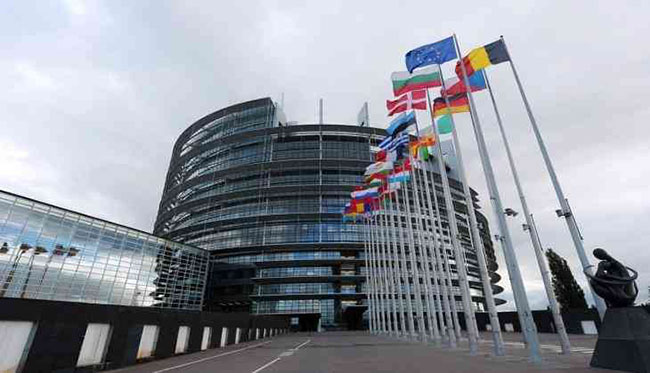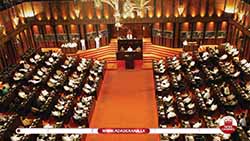EU parliament adopts resolution on Sri Lanka, propose GSP withdrawal
June 11, 2021 02:10 pm
The European Parliament has adopted a resolution calling for the repeal of Sri Lanka’s Prevention of Terrorism Act (PTA) as the law is deemed incompatible with the conventions that the country has to implement under the Generalized Scheme of Preferences (GSP+) granted to the island nation.
The resolution was adopted by 628 votes in favour of the 705-member legislative assembly of the grouping. 15 voted against while 40 abstained.
In the resolution adopted on Thursday, the EU Parliament called on the EU Commission to consider “temporary withdrawal” of Sri Lanka’s preferential access to European markets, which cuts trade tariffs significantly for Sri Lankan exports, including apparel, ceramic and rubber.
“We see the removal of constitutional safeguards, we see lack of accountability, we see discourse to exclude people, we see civil society being excluded and we see the use of the Prevention of Terrorism Act to detain activists, writers and more,” said Helena Dalli, European Commissioner for Equality, as quoted by the Colombo Page.
“The EU must defend universal rights unambiguously. Anyone who is detained under this terrorism act should be judged fairly. If they haven’t been accused, they should immediately be freed,” the Commissioner said.
In the newly adopted resolution, EU Parliament expressed its deep concern about Sri Lanka’s alarming slide towards a recurrence of grave human rights violations, as described by the most recent UN report on the country.
Noting the militarisation of civilian governmental, the EU parliament highlighted the reversal of important constitutional safeguards, political obstruction of accountability, exclusionary rhetoric, intimidation of civil society, and the use of anti-terrorism laws.
Members also reiterated their strong opposition to the continued application of the controversial Prevention of Terrorism Act (PTA), which grants the country’s police broad powers to search, arrest and detain civilian suspects. It has led to consistent and well-founded allegations of torture, sexual abuse and forced confessions.
Furthermore, they called on the Sri Lankan authorities to fulfil their pledge to review and repeal the act and replace it with anti-terrorism legislation which follows international best practices.
Sri Lanka regained access to generous EU tariff preferences under the GSP+ on 19 May 2017, on the condition that it replace the PTA and effectively implements 27 international conventions, including on human rights.
MEPs are therefore calling on the European Commission and the European External Action Service to use the GSP+ as leverage to push for progress on Sri Lanka’s human rights obligations.
They also want them to carefully assess whether there is sufficient reason, as a last resort, to initiate a procedure for the temporary withdrawal of Sri Lanka’s GSP+ status.
Earlier in March, UN High Commissioner for Human Rights Michelle Bachelet called on member states to consider targeted sanctions against Sri Lankan Government officials. A suspension of the preferential tariffs will cause further economic strain on Sri Lanka’s strained national coffers. (ANI)
-Agencies












